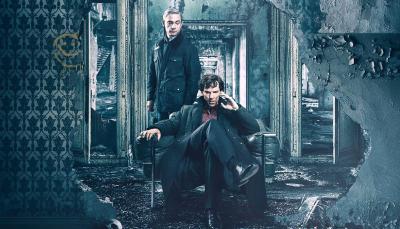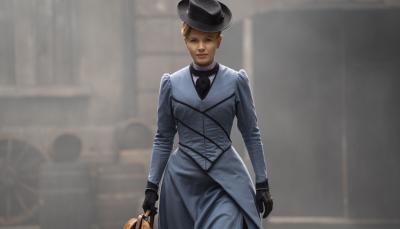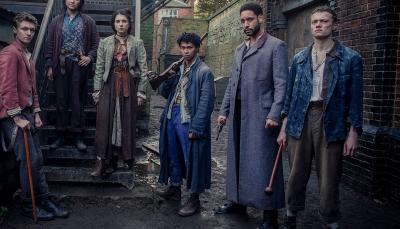'The Irregulars' Is The Most Twisted Sherlock Tale To Date
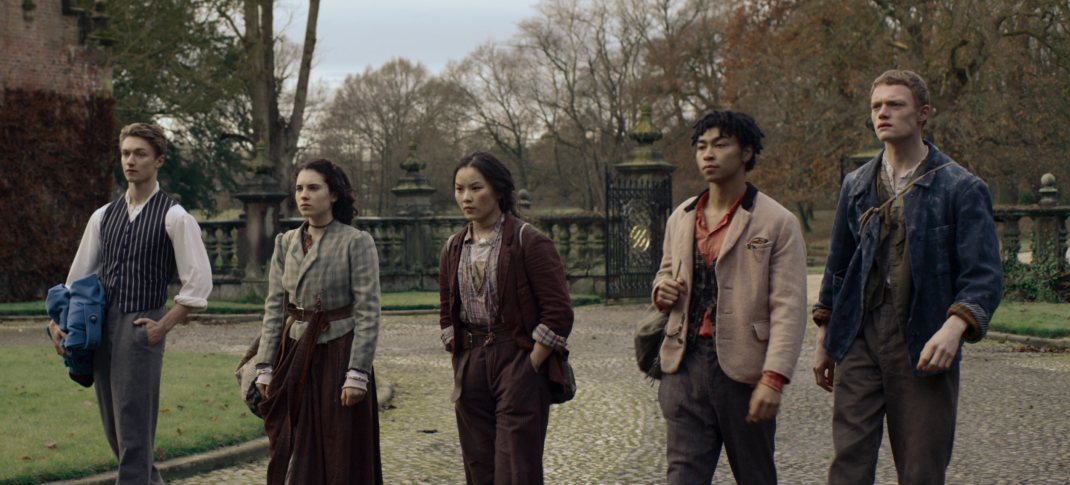
Sir Arthur Conan Doyle probably didn't realize when he wrote Sherlock Holmes that he'd be setting a formula aped by mystery stories for the next 150 years. But the popularity of the "World's Greatest Detective," combined with backroom dealings of copyright law, made the stories an attractive (and available) franchise. In the last decade alone, there's been everything from Robert Downey Jr.'s Sherlock Holmes blockbuster films to Benedict Cumberbatch's modern Sherlock to the more recent adaptation of the Enola Holmes novels, themselves a middle-grade fiction reimagining of Doyle's characters.
But of all the Holmesian titles, nothing so far has been quite like Netflix's The Irregulars. It is a truth universally acknowledged in Hollywood that if a new series can be tied back to an already-known title, it has a better chance of getting made. Netflix is known for pulling this exact move before, making films that were initially written as new works and tying them back to things like The Cloverfield Franchise. Sometimes it works; sometimes the connection feels bizarrely tenuous as if the title in question had contorted itself to fit a designated box. The Irregulars somehow does both.
The series uses small-time characters from the Holmes short stories as a jumping-off point. Known as "The Baker Street Irregulars," these (white, male) orphaned street urchins are presented as Holmes' eyes-and-ears network. (It is suggested that Holmes pays the boys handsomely for it, as a sort of semi-charity project.) Their first appearance is in the initial Holmes story, A Study in Scarlet, and they turn up again in The Sign of the Four, and then again in "The Adventure of the Crooked Man."
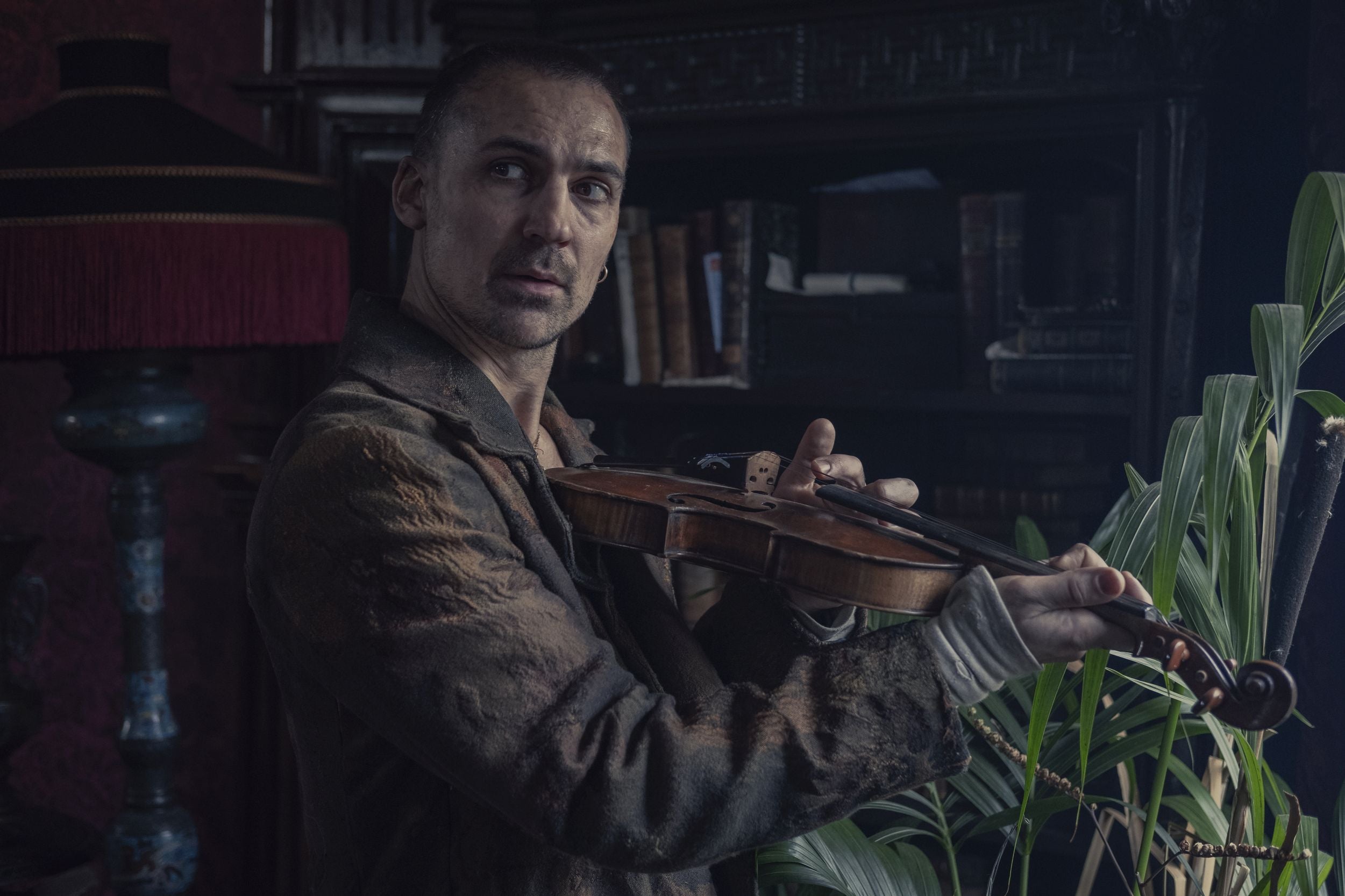
This being 2021, and Sherlock Holmes' blatant misogyny no longer acceptable, the new pack of Irregulars is lead by Bea, played by Thaddea Graham. (Viewers last saw her stealing Netflix's A Letter For The King out from under its leading men.) She and her sister Jessie (newcomer Darci Shaw) are the heart of the gang, with three boys who orbit around them: Billy (Jojo Macari from Netflix's Sex Education), Spike (McKell David from Netflix's Black Mirror), and Leo (newcomer Harrison Osterfield). This motley crew is hired by Watson (Royce Pierson), a guardian and spokesperson for an unseen Sherlock (Henry Lloyd-Hughes).
Anyone who tunes in expected to see Holmes mysteries retold should change their expectations now. The series, which begins as a monster-of-the-week show featuring supernatural events in Victorian London, has little to no interest in Doyle's writing, any more than Enola Holmes had. Enola Holmes, at least, was adapting from novels written by Nancy Springer. The Irregulars is more interested in fractured fairytales, with villains like "The Bird Man" (Game of Thrones' Rory McCann) or "The Tooth Fairy" (The Pale Horse's Sheila Atim).
But that's not to say the show isn't any good. In fact, it's rather brilliant, one you accept this has nothing to do with Sherlock Holmes, other than using the famous detective's name. A better way to understand it is to view it as an outgrowth of Netflix's wildly popular Stranger Things, a 1980s era Steven Spielberg-Stephen King pastiche. It is basically "Victorian Stranger Things," which creates a mash-up of British Detective Fiction (there is a full-on Agatha Christie-style episode), body-and-religious horror, and oddly accurate period details.
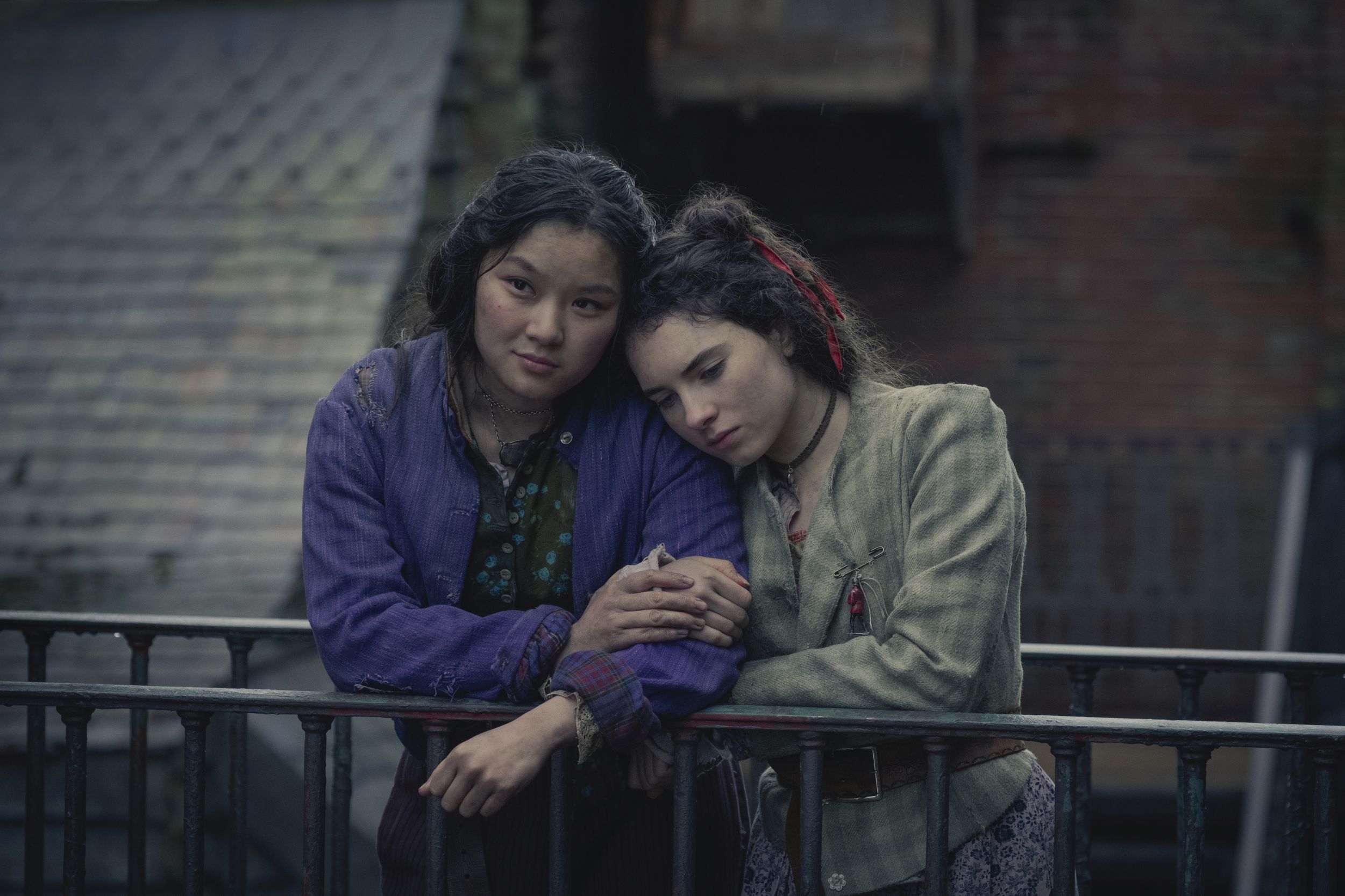
The latter comes out in Osterfield's character Leo, a royal palace escapee, as fans learn early on. Based on Prince Leopold, Queen Victoria's second youngest, his character adds a touch of PBS' Victoria to the proceedings with real-life details of the prince's life used to inform his character into a semi-romantic lead. Being a teen soap, The Irregulars adds a vague love triangle with Billy and Leo competing over Bea, but that part of the story mostly stays a backseat subplot. Part of that is due to Graham, whose Bea doesn't have time to worry about what the boys are doing, as she and Jessie focus on uncovering what's driving these supernatural events.
With so many things going on, it's performances like Graham's that make the show tick. All five of the teen actors carry the show as a set, which allows some of the series' missteps to simply roll over audiences like water off a duck's back. Pierreson makes a great inscrutable Watson as a foil to the group of teens, and Jonjo O'Neill also pops up as Mycroft at one point. As for Lloyd-Hughes' Holmes, he's not precisely the Holmesian type, but then again, neither was Henry Cavill, and no one complained. Moreover, his portrayal of Holmes-as-drug-addict is at least far more realistic than most.
The Irregulars' focus on Bea and Jessie also solves Sherlock Homes' biggest issue for modern audiences, how they focus on a white man's world and the misogynistic perspective besides. Enola Holmes, when it came out, tackled the latter issue directly; The Irregulars straight up sidesteps it, simply putting women front and center as the piece's real heroes. (It also followed the Bridgerton method of unapologetically presenting a diverse London.) Whether or not that will fly with Holmes fans remains to be seen. But for people who love a good genre show transported into a period piece, the series is bound to delight.
All eight episodes of The Irregulars are currently streaming on Netflix. Season 2 has already been greenlit.


